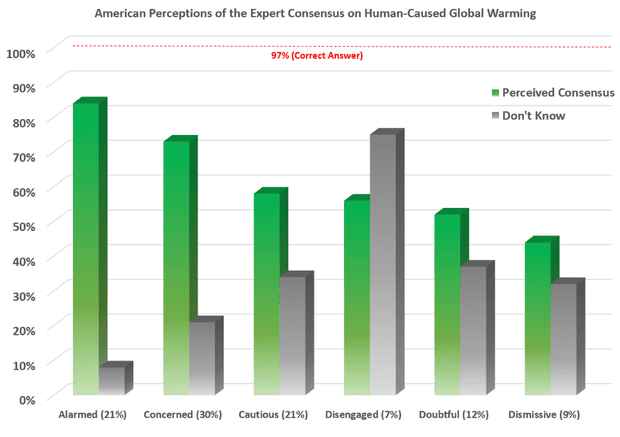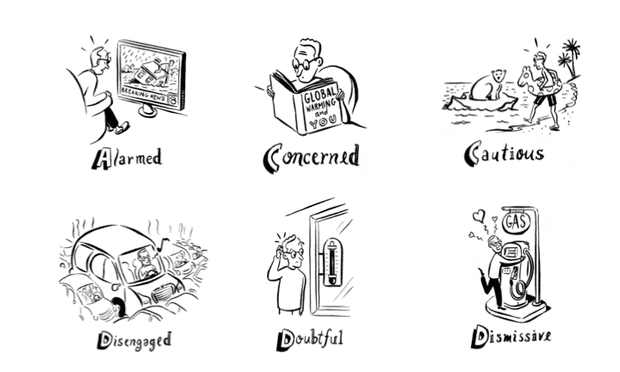Trump thinks scientists are split on climate change. So do most Americans
When queried about the most recent IPCC report, Republican lawmakers delivered a consistent, false message – that climate scientists are still debating whether humans are responsible. The previous IPCC report was quite clear on this, attributing 100% of the global warming since 1950 to human activities. As Nasa atmospheric scientist Kate Marvel recently put it, “We are more sure that greenhouse gas is causing climate change than we are that smoking causes cancer.”
Donald Trump articulated the incorrect Republican position in an interview on 60 Minutes:
We have scientists that disagree with [human-caused global warming] … You’d have to show me the [mainstream] scientists because they have a very big political agenda
To paraphrase, ‘I know scientists. I have the best scientists.’ And of course Trump thinks he has “a natural instinct for science” which, as astrophysicist Katie Mack noted, is not a thing:
Americans badly underestimate the expert climate consensus
Numerous papers have shown that over 90% of climate science experts agreethat humans are the main cause of global warming since 1950, and when considering peer-reviewed papers, the consensus exceeds 97%.
And yet as surveys by Yale and George Mason universities have found, only about 15% of Americans are aware that the expert climate consensus exceeds 90%. More recently, the Yale and George Mason team broke down American’s perceived expert consensus by their ‘Six Americas’ categorizations:
The Alarmed are fully convinced of the reality and seriousness of climate change and are already taking individual, consumer, and political action to address it. The Concerned are also convinced that global warming is happening and a serious problem, but have not yet engaged the issue personally.
Three other Americas – the Cautious, the Disengaged, and the Doubtful – represent different stages of understanding and acceptance of the problem, and none are actively involved. The final America – the Dismissive are very sure it is not happening and are actively involved as opponents of a national effort to reduce greenhouse gas emissions.
A cartoon of the ‘Six Americas.’ Illustration: Michael Sloan
As would be expected, the Alarmed and Concerned have the highest perception of the expert consensus, with the Dismissive having the lowest, and the Disengaged not having much of a clue about the level of agreement. However, the important finding in the Yale and George Mason survey is that even Americans who are Alarmed and Concerned about climate change badly underestimate the level of expert agreement on its human cause.

Average perceived expert consensus on human-caused global warming in each ‘6 Americas’ group (green) and percent in each category who don’t know the answer (grey). Illustration: Dana Nuccitelli
Perceived expert consensus is a climate ‘gateway belief’
Some have argued that efforts to communicate the consensus won’t work – that Americans’ opinions on climate change simply break down by political ideology (realism on the left, denial on the right) and in our age of ‘alternative facts,’ new information doesn’t change peoples’ beliefs.
However, numerous social science papers have found that the perceived consensus acts as a “gateway belief,” meaning that when people are aware of the high level of expert agreement on human-caused global warming, they’re more likely to accept that reality and support policies to address the problem.
Click here to read the rest
Posted by dana1981 on Monday, 22 October, 2018



